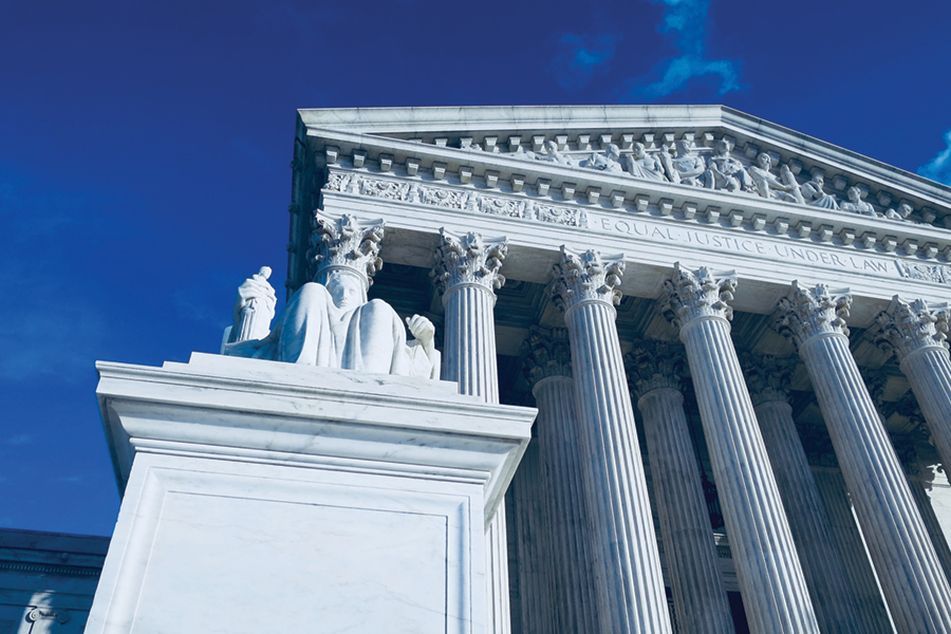Schlichter suit against Northwestern goes to Supreme Court

The defendants succeeded in getting the case dismissed in 2018 at the district court level, a decision that was upheld by an appellate court in March 2020.
The Supreme Court on Friday agreed to hear arguments in a lawsuit involving Northwestern University’s 403(b) plan, giving the law firm Schlichter Bogard & Denton one more chance to keep the case alive.
The school was one of many sued by Schlichter on behalf of proposed classes of plaintiffs several years ago, over allegations of fiduciary breaches and excessive fees. The Northwestern case alleged that the university failed to keep administrative and investment costs reasonable, as the plan included multiple record keepers and hundreds of mutual funds on its menu prior to 2012.
The defendants succeeded in getting the case dismissed in 2018 at the district court level, a decision that was upheld by an appellate court in March 2020.
When the Supreme Court begins its next session in October, it will examine the question of “whether allegations that a defined-contribution retirement plan paid or charged its participants fees that substantially exceeded fees for alternative available investment products or services are sufficient to state a claim against plan fiduciaries for breach of the duty of prudence under ERISA,” according to the petition filed by the plaintiffs last year.
The outcome could ultimately put the case to bed, or it could send the lawsuit back to a lower court.
“The university continues to believe that the decisions of the courts below were correct, and will continue to oppose the petitioners’ claims as legally and factually unmeritorious,” the school said in a statement. “The university stands by the management of its retirement benefits, and the talented and dedicated investment committee that administers its plans.”
In the petition, the plaintiffs point to differing appellate court decisions in several districts that involved similar cases, including those against the University of Pennsylvania and Washington University.
“Throughout the country, fiduciaries have failed in this basic obligation [to manage retirement plans prudently], leading to widespread lawsuits alleging that fiduciaries have breached their duty of prudence by allowing excessive administrative and investment management fees to greatly diminish participants’ retirement accounts in defined-contribution plans,” the petition read. “Most courts, including the Third, Eighth, and Ninth Circuits, have held that such allegations of excessive fees state a claim for a violation of ERISA. Yet … the Seventh Circuit affirmed dismissal of an ERISA lawsuit alleging that plan fiduciaries acted imprudently by allowing excessive fees.”
The different conclusions by those appellate courts should be resolved by the Supreme Court, the plaintiffs stated.
“The Supreme Court hearing this could go many ways. The fact that they’ve chosen to hear it doesn’t mean that they think that the pleading standards are too high or too low,” said David Levine, co-chair of Groom Law Group’s employer-focused practice. “We do have significant concerns that if the pleading standards are made to be the way the petitioners have made them out to be, it will lead to a lot more lawsuits going past an initial motion to dismiss, based on pretty limited allegations.” That could mean higher costs for plans and a bigger burden for plan sponsors, he noted.
The case is not the first in which plaintiffs represented by Schlichter have been heard by the Supreme Court. In 2015, the high court overturned an appeals court ruling in the lawsuit Tibble vs. Edison, finding that a six-year statute of limitations did not apply only to the selection of investment options for a 401(k) plan menu. Rather, that time frame also applies to the ongoing monitoring of the investments, the court found.
Choosing annuity for 401(k) plan can be tricky
Learn more about reprints and licensing for this article.








